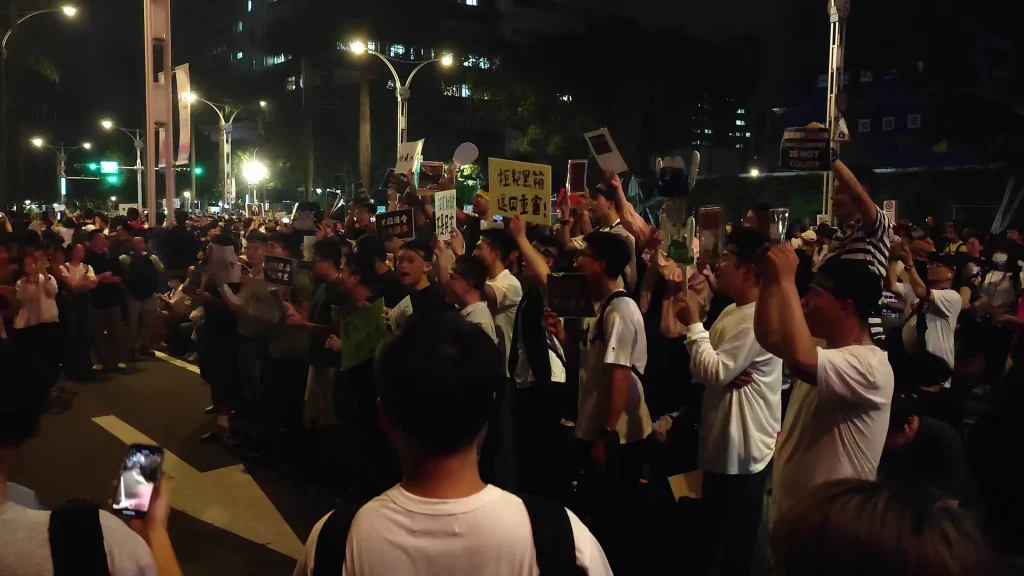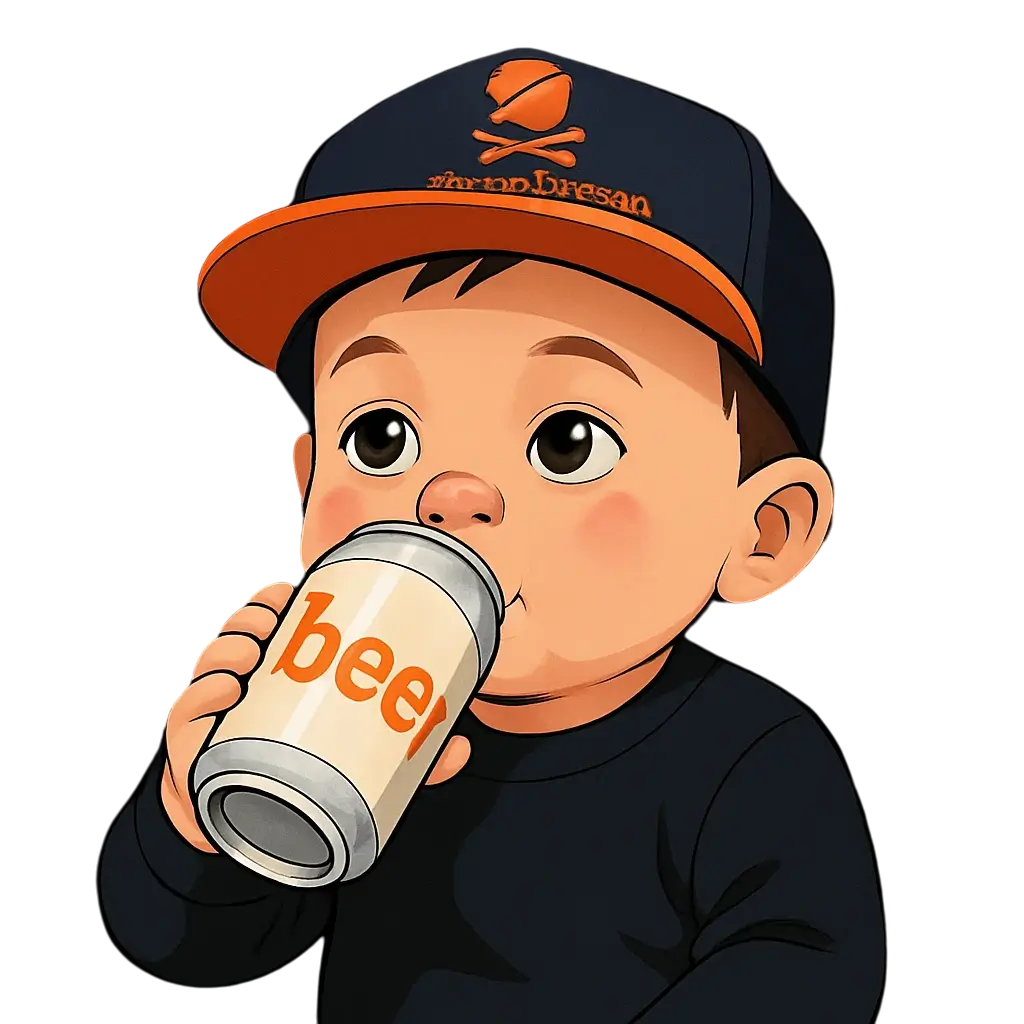Working in Taiwan: the Good, The Bad and the Ugly
After spending a decade working with various international software and hardware vendors, I had no trouble getting hired in one of the world’s leading tech nations. I was not looking to advance my career but simply to find a role that paid the bills. After all, I came to Taiwan to be with my wife, not to climb the corporate ladder. And I also became a travel vlogger.
I had to learn the hard way that this was the wrong mindset. In a nutshell, it led me to do what most people strongly advise against: I chose to work for a Taiwanese family-owned business. How did I get here? I have come to realize that Taiwan has its own unique ways – both positive and negative. Let us start with ‘The Good.’
The Good: Why Working in Taiwan is Awesome
Plenty of well-known facts prove Taiwan is an incredibly awesome place to live. The world-class national healthcare system, delicious yet affordable food in endless varieties, and unmatched convenience in all aspects of daily life. All of that make traveling in Taiwan an amazing experience. But I will skip the obvious and highlight something less discussed: Taiwan has a great working culture.
Yes, I said it. I have not experienced any unpaid overtime; generally, companies here care about their employees. I get along well with my colleagues and have enjoyed company events, from official Chinese New Year banquets to more casual karaoke sessions. Since my first day, I have exclusively worked for Taiwanese organizations, and not once have I encountered the stereotype of unproductive, mandatory overtime or supervisors aiming to micro-manage me. I have also never dealt with unrealistic deadlines or targets.
I have worked and continue to work with skilled colleagues and most of them are passionate about their job. Education is highly valued in Taiwan, and people are eager to learn new things throughout their careers. At the same time, I never had the feeling that my co-workers get over ambitious, instead, they are willing to go the extra mile to help you, which is something I definitely did not encounter on such a frequent basis when working with colleagues from Europe and the US. This respect for learning and professionalism creates a supportive work environment, and I have met inspiring people in every organization I have worked for.

It is also easy to find friends outside of work. Taiwan is colorful and modern, so there is plenty of leisure offers. Taiwanese people are open and curious, but also respectful and polite.
That begs the question of why Taiwan faces challenges of brain drain, as many talented individuals choose to leave the country. While it is true that salaries abroad can be higher, this reasoning feels overly simplistic. Let us take a look at ‘The Bad’ – at some of the not-so-great things I have experienced.
The Bad: Why Taiwan is not the Land of Milk and Honey
The first and most obvious challenge is the language barrier. As a (Western) foreigner, you can easily get by without speaking any Mandarin. However, I believe understanding Taiwan’s values and culture requires speaking the language. Learning the tones and characters demands long-term commitment and it takes several years to become fluent in Mandarin.
Then there is the job market. I have already spoken about how finding a job in Taiwan can be a frustrating experience, a challenge not unique to Taiwan. Hiring processes and interviews can be tedious. Add the language barrier, and you are always in for a potential shit show (at least I was). Not always, of course, but it does happen.
Your Vacation Days Are Numbered When Working in Taiwan
Vacation and office policies here are another adjustment you have to get used to. The concept of a home office is nearly nonexistent in Taiwan. Paid time off is also less than in most Western countries; you typically get 7 to 10 days in your first year. But the Lunar New Year does add around eight extra days of holiday.
You also have to get used to being permanently perceived as a (US-American) foreigner. I totally understand that my love for drinking beer, watching football, and eating potatoes makes me stand out in Taiwan, and that is fine. But you also have to accept that you are typically seen as either an American language teacher or a startup founder.
Taiwanese schools pay foreigners above-average salaries, and in some cases, you do not even need a matching degree. The government also offers a so-called Gold Card Visa for skilled professionals. Thus, for most Taiwanese, seeing a (white) foreigner aiming to be a regular employee is unexpected.
Most Foreigners Working in Taiwan Are Teachers
That itself is not bad, and it helps change your perception if you can introduce yourself in Mandarin. However, I learned to avoid international meetups focused on working as a foreigner in Taiwan. They did not help me to get my foot on the ground. Instead expect to meet plenty of expats teaching English and self-proclaimed “CEOs”. Many of these “founders” likely earn their primary income from teaching languages as well.
Do not get me wrong – Taiwan’s entrepreneur visa is a fantastic opportunity. However, the foreign entrepreneurs I have met have been quite straightforward about their lack of sympathy for my approach of ‘just applying for jobs that fit my profile.’ For me, this is a good reason to skip international meetups – except for football games, of course!
All of these points have in common that I managed to handle them. But what about the challenges that I have not been able to tackle? While Taiwan is a fantastic place to live and shares many of the same challenges as other modern countries, we need to talk about ‘the Ugly.’ So, let us have that conversation.
The Ugly: Why I Failed Working in Taiwan
Before moving to Taiwan, I had spent several years with each organization I worked for and considered myself a loyal employee. In Taiwan, however, I left my first job after only a few days and my second after a few months. Both times, I was part of the marketing team in tech companies, yet I could not see how I was adding value to the organization and thus decided to leave.

Thinking about it today, I see a disconnect caused by cultural differences, especially in the perception of marketing and the role of marketing leaders. I understand marketing as a way to build a pipeline and feed a lead funnel. In a nutshell, it is generally just a few simple steps: Identify a target audience (your potential buyers), get their awareness and create demand, turn them into prospects and bring them closer to your products or services, and make sure that sales can convert them into customers. As a bonus, marketing also means ensuring customer loyalty and strengthening brand ties.
In Taiwan, however, I found that these tasks often fall under sales. Marketing is not considered a mission-critical function. Sounds a bit odd, but, just for example, no marketing team I worked with had any real KPIs – no page visits, no MQLs/SQLs, no TIER media lists or coverage targets, and no conversion rates – most even did not create a single lead. The best I saw was people counting LinkedIn followers. Forget about discussing a revenue pipeline or anything similar.
The Boss Is Always Right, Even When He/She Is Not
I am not sure how C-level executives recruit their marketing directors, but it definitely does not seem to prioritize marketing experience or performance. Plenty of the marketing leaders I met (including during job interviews) lack substantial (digital) marketing know-how, which can lead to some awkward moments.

For instance, I was hired to write SEO content, but when I asked about the lack of meta descriptions, alt texts, and meta titles on all webpages of the company website, I was told there was ‘no time for that.’ When I pointed out that these are essential for SEO, I quickly learned that such suggestions were not welcome. In Taiwan, the boss is always right – even when they are not. If they say a car does not need to have wheels, you drive the car without wheels – end of story.
Similarly, even if your target audience is in the EU or North America, do not attempt to suggest privacy or cookie policies. You will have to accept that the website did not need a cookie policy 15 years ago when it was built, so it does need one (or any other changes) now. The fact that your supervisor is unfamiliar with GDPR or cookies should not be your concern. Simply follow instructions and ensure you are not the nail that sticks out.
Trying to Learn My Lessons While Working in Taiwan
I hope you catch the irony, but working in marketing is where Taiwan gets ugly. Unfortunately, those two examples are not just the tip of the iceberg. I found situations like this at least once a week where essential tools and best practices were dismissed, preventing me from contributing any productive work.
While there is a consensus on the importance of budgeting for marketing, it seems Taiwanese companies are less critical in evaluating how that money is spent. Many of the initiatives I saw are unlikely to generate significant ROI – which was a hard lesson to learn.
I know I do sound like I am a bullhead who insists things have to go my way, but if your actions do not and will never have the chance to make an impact at all, then it is time to find a new challenge. Ultimately, I walked out of companies (and interviews) faster than ever before. As I mentioned at the start, finding new job offers was not a challenge, but I had to be more selective during interviews.
Not the End of My Taiwan Story
For me the ‘Ugly’ side of Taiwan’s work culture does exist, which forced me to adapt. Marketing is full of challenges, and if you are strict about your messaging, branding, and funnel in general, your marketing organization can quickly become a budget cemetery -something I do not want to be part of.
I left two jobs in less than 10 months – a fact that still nags at me to this day. However, I am more passionate about PR and content than ever before and incredibly thankful for the chance to continue working in these fields. This year I had the chance to visit Germany (Germany Travel Vlog) and there also will be more content about Kinmen Island coming soon!



Comments
5 responses to “Working in Taiwan: the Good, The Bad and the Ugly”
Thanks for the article. I have a job offer there. Would be nice if I could ask some questions.
hey Keith,
I do have a job, put I am glad to talk, drop me a message with the details: https://travelingkunz.com/home/contact-traveling-kunz/
Best regards
Ferdinand
Appreciate the article, not often to read about the “ugly” side of anything from bloggers. Best wishes and stay positive!
Thank you for sharing your experiences both positive and negative.
I am mostly surprised that the employers/bosses don’t feel the urge to improve and don’t accept suggestions for improvement.
I am currently applying for a job as a language teacher in Taipei and I wish to move to Taiwan soon (I am Swiss).
thanks for your feedback